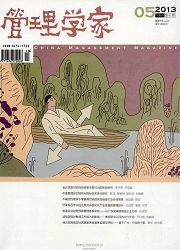

 中文摘要:
中文摘要:
本文选用多案例研究方法,依照科特的组织变革八步模型,探讨了中国企业成功组织变革的不同阶段中企业领导风格的特点,总结探讨了变革各阶段领导遇到的困难及解决方式。我们的研究发现,在中国企业的成功组织变革过程中,领导者的特质与行为呈现出了与西方不同的特色:如在解冻阶段,领导者不仅需要具有危机意识、对政治敏感,还要善于学习、开明进取;在变革阶段,领导者要具有设立目标、促进愿景共享的能力,决策过程中要奉行"先民主后集中"的民主集中制;在再冻结阶段,领导者需要具有不满足现状,精益求精的精神,还要能够将企业最高领导者的终极价值观转化为企业的管理模式,落实到企业文化理念中。
 英文摘要:
英文摘要:
According to Kotter's eight-step change model,this study employs multi-case analysis approach to explore the leadership styles at different stages of organizational change,which is successful in Chinese enterprises. It also summarizes difficulties that leaders encounter with during the organizational change process and their corresponding solutions. We find that leadership traits and behaviors in China are unique and different from those in the western cultural background. During the unfreezing stage,Chinese corporate leaders are not only required to possess crisis sense and sensitivity to politics,but also need to be good at learning and be open-minded;and during the changing stage,it is necessary for leaders to be able to set goals and promote the sharing of vision. Leaders should adopt the democratic centralism which means firstly introducing democracy and then centralization during the decision making process;while at the refreezing stage,leaders should never be satisfied with the current situation and have the spirit of continuous improvement. Furthermore,it is critical to transform the leader's ultimate value to enterprise management model and cultivate the organizational culture.
 同期刊论文项目
同期刊论文项目
 同项目期刊论文
同项目期刊论文
 The influence of external recruitment practices on job search practices across domestic labor market
The influence of external recruitment practices on job search practices across domestic labor market 期刊信息
期刊信息
